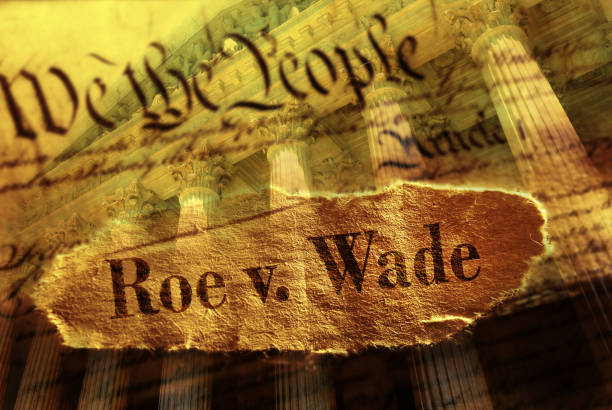The sensational 6-3 decision overturning Roe v Wade sparks a debate on the right to reproductive justice, dubbing the ruling a “dark day for America.”
After nearly half a century of Roe v. Wade, the Supreme Court overturned the constitutional right to abortion, effectively ending 50 years of federal abortion rights and ushering in a fundamental change for America and the American people. The historic 5-4 decision allowing states to prohibit abortions is likely to lead roughly more than half of the states in the US into uncharted and uncertain territory.
The ruling, which was hard to imagine and impractical a few years ago, became a reality thanks to the continued efforts of abortion opponents, three of whom were members of the former Trump administration. Justice Clarence Thomas, who was part of the ruling and was in the majority, urged colleagues to overturn other rulings that protect fundamental rights like same-sex marriage, gay sex, and access to birth control.
In response to the Supreme Court’s decision, clinics in at least eight states, including Alabama, Arizona, Arkansas, Kentucky, South Dakota, Wisconsin, and West Virginia, have ceased performing abortions. Before the Roe v. Wade decision, Oklahoma had already imposed a near-complete ban on pregnant women considering abortions, and Texas had imposed a ban of prohibition after about six weeks. When a federal judge lifted an injunction that had kept the measure on hold for nearly three years, Ohio’s ban on abortions after the first detectable foetal heartbeat became law. The ruling also triggered Utah’s law, which went into effect with limited exceptions.
Abortion opponents cheered and celebrated the Supreme Court ruling while many supporters of abortion rights including US President Biden, French President Macron, Michele Obama and other prominent names have condemned the ruling citing it as ‘turning back the clock 50 years ago’, ‘sabotage of a woman’s right to her body’, ‘absolving a critical fundamental right’, ‘a dark day for America’ among many more.
“It’s a sad day for the court and the country,” Biden said in his White House address. “This decision must not be the final word,” he concluded, urging voters to make it a central issue in the upcoming November elections.
Former US President Trump, who is on trial for January 6, 2021, Capitol Hill riot attack, praised the ruling, asserting that it “will work out for the best for everybody.”
According to statistics, the decision is expected to disproportionately affect minority women, who already have limited access to health care. It also puts the court at odds with a majority of Americans who, according to polls, support the preservation of Roe v. Wade.
According to polls conducted by The Associated Press-NORC Center for Public Affairs Research and others, the majority of people support abortion being legal in all or most cases. However, many people also support restrictions, especially in the latter stages of pregnancy. Polls reveal that about one in ten Americans want abortion to be illegal in all cases.
The ruling came more than a month after the shocking leak of a draft opinion by Justice Samuel Alito, indicating that the court was ready to take this historic step of overturning Roe. Following the ruling, abortion opponents may now seek a nationwide ban “from the moment of conception, with no exceptions for rape or incest.”
The Biden administration and other abortion-rights supporters have warned that overturning Roe would adversely impact other high court decisions which were earlier in favour of gay rights and contraception.
The Supreme Court’s decision comes just days after its ruling that Americans have the right to carry guns in public, overturning a more than century-old New York law that required a person to prove legitimate self-defence need in order to obtain a permit for carrying a concealed handgun outside the home.




